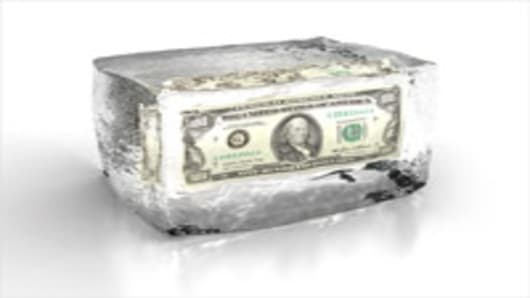European Union Economy Commissioner Olli Rehn warned on Tuesday that euro zone countries may need to prepare more budget cuts, without specifying which ones.
And on Wednesday, German Chancellor Angela Merkel and French President Nicolas Sarkozy urged the EU to consider a wide ban on short selling of shares and state bonds, as speculation has intensified that some European states will eventually default on their debt.
In the US, a Treasury Department report sent to Congress shows that public debt will rise to 102 percent of gross domestic product by 2015 from 93 percent this year, to $19.6 trillion.
"We can't kick this can along the road forever," Scala said about the US debt problem. "If we continue to stimulate by issuing more debt or by printing, it's going to make it worse."
"This debt balloon has arrived. You will ultimately see it in the US," he said in a telephone interview.
Europeans have opted for austerity while US Treasury Secretary Timothy Geithner is still on the side of stimulating growth, and some analysts are saying that now is not the time to crush the recovery with austerity measures.
"At a time like this, it's way too early in this recovery especially for Europe and especially for the UK to be talking that game," Hugh Johnson, an investment strategist at Johnson Illington Advisors, told CNBC.
"It's too soon to reduce (stimulus) or to eliminate it. I agree at some point you have to do something, but it's way too early," Johnson insisted.
Scala argued that the stimulus has increased the size of the public sector and that structurally the US has "huge problems", just like the euro zone.
"I don't think the government stimulus can create wealth," he said. "The public sector job growth has been enormous. The government has rapidly become the employer of last resort."
Raising taxes, such as capital gains and income taxes, would add revenue to the budget, but the boost would be short-lived because this would affect the private sector, according to Scala.
"We have bad choices and worse choices, because we've spent way too much," he said.


